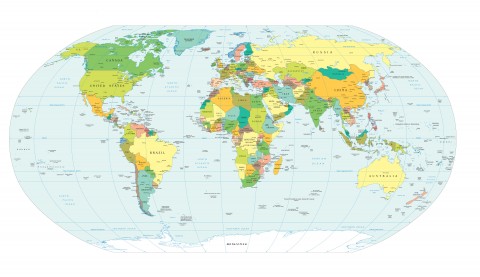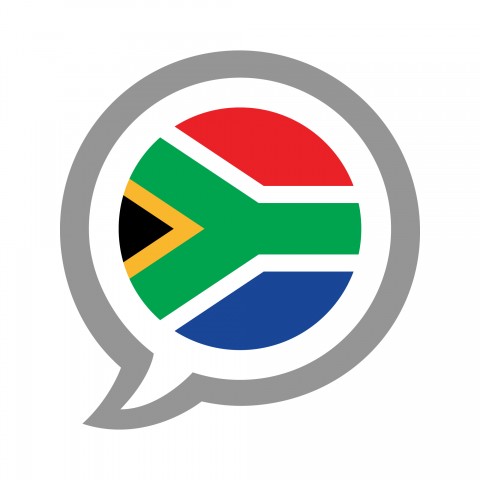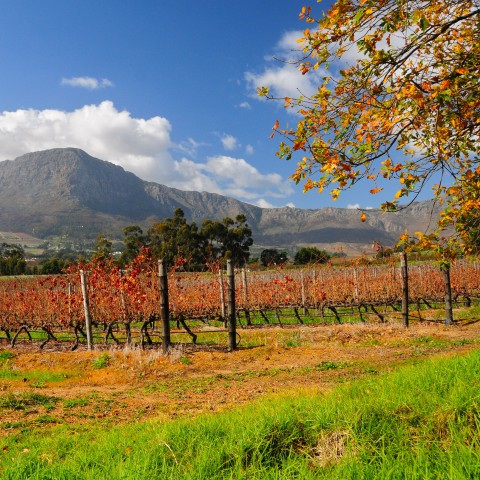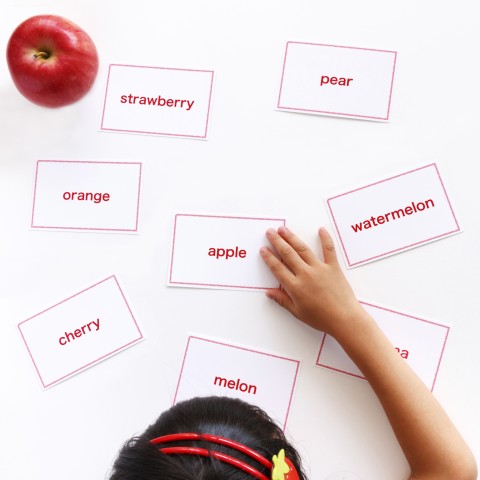
Why learn Afrikaans?
Well, there are plenty of good reasons to learn a new language.
Some might be inspired to learn the language because of its unique appeal. Or, perhaps they wish to acquire proficiency in a language other than their mother tongue, because it’s bound to open many doors for them. Perhaps you have your own, special reason for wanting to learn Afrikaans—or perhaps you’re still deciding whether you’d like to start learning it. In that case, it might help if I tell you what I, as a native speaker, love about the Afrikaans language!
 Table of Contents
Table of Contents
- It is uniquely expressive.
- It’s full of humor!
- It has lovely nuutskeppings (“neologisms”).
- It can broaden your job horizons.
- It has a significant international presence.
- Despite rumors, Afrikaans is not a dying language.
- It opens unique cultural horizons.
- It’s good for your brain.
- Learning Afrikaans specifically offers certain advantages.
- Because of its roots, Afrikaans is not that difficult to learn.
1. It is uniquely expressive.
Languages reflect the culture they originate from, so each language inevitably spawns its own inspiring words. The wonderfully descriptive Swedish word mångata comes to mind, for instance. This refers to the path-like glimmer of the moon on water.

‘Mångata‘ is ‘n pragtige Sweedse woord wat “maanligpad” beteken. / “‘Mångata’ is a beautiful Swedish word that means ‘the path of the moon on the water'”
Another beautiful example is the soulful, essentially untranslatable Portuguese saudade, which is so nuanced in meaning that it still inspires music and literature, and also has its own Wiki page. Saudade refers (very basically!) to a sad and deep yearning for something currently unattainable—a pretty universal feeling.
1.1 Afrikaans has personality!
Each language has its own unique “personality,” and this is especially true of Afrikaans. One often hears people talking about how “very expressive” Afrikaans is. Even South Africans will comment on this, despite having been exposed to it all their lives.
It’s a very earthy, bold language that is reminiscent of the harshness and beauty of Africa—hence the word Afrikaans. Because of this, we’re often able to capture the essence of the thing we’re talking about in a way that few other languages can.
I’m particularly partial to the earthiness of Afrikaans. The somewhat grating, guttural “g” and our rolling “r” remind me of wagon wheels rattling over the hard earth, or perhaps something even more primal. It’s an unpretentious language that tends to express the thing as it is.
Even the words we use are often literal and relate directly to the thing they signify. Take the word aardvark, for instance. Literally, it translates to “earth pig,” which makes sense when you look at the animal.

Die aardvark is ‘n uniek-Suid Afrikaanse dier. / “The aardvark is a uniquely South African animal.”
The aardvark looks like a long-nosed pig, and it gets its food from the earth by pushing a long, sticky tongue into subterranean termite nests.
Consider also the word kameelperd (“giraffe”), which directly translates to “camel horse.” If you ask me, that’s a rather apt description of the giraffe!
An interesting aside: The English word “giraffe” originated from the Arabic zarāfah (زرافة), which delightfully translates to “fast walker”—something the kameelperd definitely is, by the way. I think that’s a wonderfully descriptive name too.

Die Engelse woord “giraffe” wat ‘kameelperd’ beteken, vind sy oorsprong in Arabiers. / Approximate: “The word ‘giraffe’ originated from the Arabic language.”
1.2 Afrikaans has very expressive dialects and slang
Our language also has some fascinating dialects, and few can compare to Cape Afrikaans (also called Cape Flats Afrikaans) and Orange River Afrikaans. Even among Afrikaners, these are considered characterful and extremely expressive.
We take creative license with slang, especially. Consider, for instance, the word bebloed (“bloody”). In Cape Flats Afrikaans, this word has its regular meaning (something covered or infused with blood), but it can also refer to anger, such as in the sentence: Hy was bebloed toe die kar gebreek het. (“He was really angry when the car broke.”) I guess it could refer to a person’s blood-red face associated with an outburst of extreme anger!
Or, consider the words kwaai (“angry”) and gevaarlik (“dangerous”). In Orange River Afrikaans, these are also exclamations used to indicate that something is excellent, awesome, and exciting. Like this: Dis kwaai musiek daardie! (“It is excellent music, that!”) Or: Sy nuwe bike is gevaarlik! (“His new bike is awesome!”) Many other South African languages adopted the use of these slang words, too.
Why study Afrikaans? Perhaps the gratification of expressing yourself in a wholly new, colorful way could be reason enough.

Leer ‘n nuwe taal om nuwe horisonne oop te maak. / “Learn a new language to open new horizons.”
2. It’s full of humor!
I also think Afrikaans has a marvelous sense of humor. Have a look at some of these amusing idiomatic expressions. Maybe you can tell me which is your favorite in the comments!
(And definitely also expand your language horizons with The 31 Best Afrikaans Proverbs and Their Meanings.)
- Die bobbejaan agter die bult te gaan haal.
Lit. “To fetch the baboon from behind the hill.”
Meaning: To risk making things happen by talking or thinking (i.e. worrying!) about them in advance, similar to a self-fulfilling prophecy
- So ń bek moet jem kry.
Lit. “Such a mouth should get jam.”
Meaning: A response to a comment that is very clever or witty, or that rings true
- Wors in die hondestal soek.
Lit. “To look for sausage in the dog cage.”
Meaning: Looking for something that is hard to find, like looking for a needle in a haystack
- Dis ‘n feit soos ‘n koei.
Lit. “It’s a fact like a cow.”
Meaning: An obvious fact that can’t be argued with
These idioms are just the tip of a massive iceberg of wonderfully imaginative expressions!
3. It has lovely nuutskeppings (“neologisms”).
Having so many dialects, and being spoken by a people who love creative expression, Afrikaans is bound to deliver some interesting and colorful neologisms.
The most recent one I encountered was googleloer. This is a verb that refers to the brief use of Google (the search engine), and translates literally to “Google peek.”
During the COVID-19 pandemic—a difficult time that saw more or less the entire world in lockdown and in dire need of lightheartedness—Afrikaners introduced neologisms such as koeshoes (literally: “dodge cough,” or the type of cough one should dodge away from) and kwarantynwyn (“home-brewed alcohol” or literally: “quarantine wine”). The words rhyme in Afrikaans, which makes them more catchy.
Now that I have hopefully convinced you that our language is appealing enough to want to get to know better, let’s look at other reasons why learning Afrikaans is a good idea.

Om meer as een taal te kan praat maak jou meer veelsydig in die lewe. / “Speaking more than one language will make you more versatile in life.”
4. It can broaden your job horizons.
This is true of all languages—they are portals into worlds of many kinds. But if you’re ready to transform your life by doing something really adventurous, consider working in South Africa or Namibia, where Afrikaans is widely spoken. Mother Africa has a way of getting into your blood like no other continent, and you are guaranteed a unique and soulful experience. You might even choose not to return home at all! Many foreigners eventually relocate permanently to South Africa or Namibia. Read here about South Africa’s most beautiful city to learn why this might be one of your best decisions yet.
4.1 Don’t believe the negatives…
Don’t believe the nay-sayers too readily. With the right qualifications, and by working with a reputable recruitment agency, landing a great job in South Africa is entirely possible.
For instance, what do a CISCO solution specialist and a safety, health, environment, and quality practitioner have in common? They’re both on the South African government list for critical skills lacking in the country.
There’s furthermore a dire need for medical staff and teachers of Afrikaans, especially in our rural areas. These jobs are almost guaranteed for applicants with the right qualifications, and obviously only if you’re fluent in Afrikaans.
Successful foreign applicants will have to apply for a critical skills visa, where speaking one or two of the 11 official languages will also count in your favor.
Tip: Do not visit South Africa in the hope that you’ll find employment while you’re there—that’s job-hunting the hard way. There are numerous private-sector foreign recruiting options, but be sure to look at Job Nexus, an agency that helps international job-seekers find suitable recruitment agencies in the country. Also consider Initiate International Recruitment, which lists several white-collar jobs every day. Read, in addition, our article Agencies that help you find a job in South Africa & More! for helpful tips.

Afrikaans het ‘n aansienlike internasionale teenwoordigheid. / “Afrikaans has a significant international presence.”
5. It has a significant international presence.
Aside from its unique beauty and its prevalence in South Africa, why is it important to learn Afrikaans? Well, while the language originated in and is widely spoken in our country, it has a significant international presence too.
- Afrikaans is spoken by most Namibians as a first language, according to their 2011 census. English is the country’s official language, but it has first-language status in only 2% of households.
- A few areas in Botswana, one of our neighboring countries, have significant Afrikaans-speaking populations. Afrikaans is not an official language of the country, but in the Kgalagadi, Kang, and Gantsi districts, its use is significant enough for “Botswana Afrikaans” to be classified as a distinct variety of the Oranjerivier (“Orange River”) dialect.
- Afrikaans courses are offered internationally by prominent universities such as Harvard University and the University of Pennsylvania in the U.S.A. It’s also offered as a subject by the Institute for Asian and African Languages at the Lomonosov Moscow State University. The University of Vienna, Austria, furthermore endorses an Afrikaans research group, while the Ghent University in Belgium has a ‘Centre for Afrikaans and the Study of South Africa.’
- Furthermore, there are large groups of Afrikaans expats in countries like, among others, Australia, New Zealand, the Netherlands, the U.S.A., the U.K., and even the U.A.E.
- Who’d have thought that you’d also find a small group of Afrikaans-speaking people in Patagonia, Argentina? This group comprises the hardy descendants of Afrikaners who left South Africa during the Boer Wars two centuries ago. They’re few in number, but the community is significant enough to have been the subject of a study by Michigan University, U.S.A. They even had a film made about the group, which was released in 2015: The Boers at the End of the World. Interestingly, the group was considered extinct three decades ago, but the community and their unique cultural heritage were revived. We have a word for this phenomenon in Afrikaans—kanniedood (lit. “cannot die”)—and it describes one of the most enduring Afrikaner characteristics: We are survivors—a hardy people who have historically faced incredible resistance, and have, time and again, survived against the odds. In much the same way, the Afrikaans language continues to survive and adapt.

Dit sal voordelig wees om goed Afrikaans te praat as jy in Suid Afrika of Namibië werksoek. / “It will be beneficial to speak Afrikaans well if you are looking for a job in South Africa or Namibia.”
6. Despite rumors, Afrikaans is not a dying language.
When South Africa gained full democracy in 1994, the fear was born among some Afrikaners that their language would disappear. Up until as recently as a few years ago, many thought it was only a matter of time before it would join the list of “Dead Languages.” However, these days, the nay-sayers are changing their tune—and also, the facts beg to differ.
- The argument that the continued existence of Afrikaans is in danger has some validity, but this concern is disproportionately represented in the media by those with political agendas and narratives. Unfortunately, many still (justifiably) consider Afrikaans to be the “oppressor’s language”—the Caucasian Afrikaners being the oppressors. And yes, there’s no denying that Afrikaans history is steeped in blood that was shed during political struggle. However, the negative label is not entirely fair or accurate. Firstly, the majority of Afrikaans-speakers are non-Caucasian or “Coloreds”1—constituents of one of the country’s previously oppressed groups. Secondly, as a friend remarked: If somebody used to behave very badly, but was converted and was demonstrably committed to the good of all, would you really condemn them to death? Is there no redemption? Many feel that the Afrikaans language doesn’t deserve to die, despite its checkered past, and we believe that it still has a significant role to play in the world. It’s furthermore noteworthy that some of our most outstanding Caucasian Afrikaans authors were stalwarts of the political struggle against oppression and apartheid. Breyten Breytenbach, André P. Brink, Ingrid Jonker, and Athol Fugard come to mind.
- Even though Afrikaans is not spoken by the majority of people in the country, it is nevertheless the South African lingua franca of business. It shares this status with English.
- In 2018, 12.2% of the population listed Afrikaans as their home language, compared to 8.1% of English home-language speakers. It’s also the fourth most spoken language outside of the home.
- The majority of the population in the Western Cape, Northern Cape, and Gauteng provinces speaks Afrikaans. This matters, because the Western Cape and Gauteng are the economic hubs of the country, while the Western and Northern Cape are home to many of our major tourist attractions.
- The majority of the country’s population can speak Afrikaans as a second or third language, or they are at least able to communicate well enough in it to get what they need. If you plan to work or travel in rural areas, you’ll find English almost useless.
- Afrikaans literature has the biggest market share in the local publication business, according to Dr. Nicol Stassen, executive head of one of the largest publication houses in South Africa (Protea Boekhuis). He noted that in 2015, 49% of all locally published books were Afrikaans, and large international publishers (such as Oxford and Penguin Random House) have joined this market. This was not always the case, by the way. In 2004, only 22% of all locally published books were Afrikaans, so the growth is very encouraging.
- A number of extremely successful Afrikaans authors’ works were translated into other languages and distributed internationally. Many of these books have been turned into movies—think Deon Meyer, Elsa Joubert, Dalene Matthee, and so forth.
- Afrikaans furthermore thrives in the performing arts arena, notably in the music and film industries. The movies Moffie and Ellen: The Ellen Pakkies Story garnered a lot of international interest and were nominated for important film awards. Also, countries like the Netherlands and Belgium love Afrikaans music, and our local stars often travel there to perform in front of huge crowds.
1In South Africa, a large group of people of mixed descent (mainly Black, White, Malay, and San), self-identify as “Colored.” Please note that, unlike in America, this is not a derogatory term in South Africa.

Suid Afrika is een van die wêreld se mooiste toeristebestemmings. / “South Africa is one of the world’s most beautiful tourist destinations.”
7. It opens unique cultural horizons.
South Africa is home to a rich diversity of cultures. Among them, the Afrikaners, specifically, are known for their cuisine, especially the famed braai. Be sure to read our article The Best South African Foods (with Recipes to Try) for more information on this delightful topic.
Of course, there’s also our love of rugby. When our international rugby team, the Springbokke (lit. “jumping antelope”) plays, the game is a national event many won’t miss for anything. This is one of the top teams in the world and has won the Rugby World Cup on three occasions. The only other country to have done so is New Zealand.
One of the oldest industries in the country, the wine industry, is run mainly by Afrikaners. The quality of our wines is known far and wide, and the wines have won many prestigious international awards over the decades.
We South Africans are, in general, a friendly and generous lot, and it’s possible to make friends for life here. The country’s political scene is not the easiest to understand, and the divide between the rich minority and the poor majority is still way too big, but we’re also busy building a different, inclusive culture that many foreign visitors find unique and inspiring.
If you’re still not quite convinced about the benefits of learning Afrikaans—or of being introduced to such a unique culture—have a look at the next topic…

8. It’s good for your brain.
As it turns out, experiencing a new culture and studying in a different country may have cognitive benefits. These benefits are fairly well-documented and, while the research is not uncontested, the evidence leans most strongly towards second-language acquisition being a positive thing.
- One 2012 review of the data links bilingualism to improvements in cognitive and sensory processing. The authors also remarked that the ability to speak two languages may help you to better process information in the environment, leading to improved attention to detail and better task-switching capabilities.
- And that’s not all! It has been shown that bilingual students will learn a third language more easily than they did their second language. So, it appears that acquiring a new language becomes easier the more languages you master!
Research also seems to suggest that children and older adults benefit the most from bilingualism. Both groups can perform certain tasks better, and the benefits for adults are that they age better neurologically and show delayed onset of neuropathy. To think that it was once considered harmful for the brain to learn a new language…!

Om ‘n nuwe taal te leer is goed vir jou grysstof! / “Learning a new langauge is good for your grey matter!”
9. Learning Afrikaans specifically offers certain advantages.
Once you’ve mastered Afrikaans, you’ll likely find it extremely easy to learn Flemish and Dutch, and relatively easy to understand and study German and other related languages. Many birds with one stone, so to speak! And here’s why …
10. Because of its roots, Afrikaans is not that difficult to learn.
Like English, Flemish, German, Dutch, etc., Afrikaans is of Germanic origin. This means that for speakers of any related language, Afrikaans would be much easier to master.
It’s also a relatively young language, so:
- it has an uncomplicated vocabulary compared to, say, Mandarin or Chinese;
- nouns don’t have gender;
- conjugations are less complex compared to all older languages. For instance, the be-verbs don’t change for number and pronoun, as they do in English, for instance.
What’s more, over the past three decades, the internet has made language learning so much easier! Wondering where to learn Afrikaans when so many options are available? Innovative Language, which is one of the oldest online language-learning platforms around, draws from years of experience and tried-and-tested expertise.
At Innovative Language, AfrikaansPod101 is one of 34 languages available to study and you can expect offerings such as:
- Culturally relevant lessons
- A free online Afrikaans dictionary
- Access to Afrikaans Key Phrases
- Hundreds of lessons in different formats
Sign up right now and see for yourself why you should learn Afrikaans!
About the Author: Christa Davel is an experienced, bilingual (Afrikaans and English) freelance writer and copy editor, who’s currently based in Cape Town, South Africa. She’s been writing for InnovativeLanguage since 2017.










